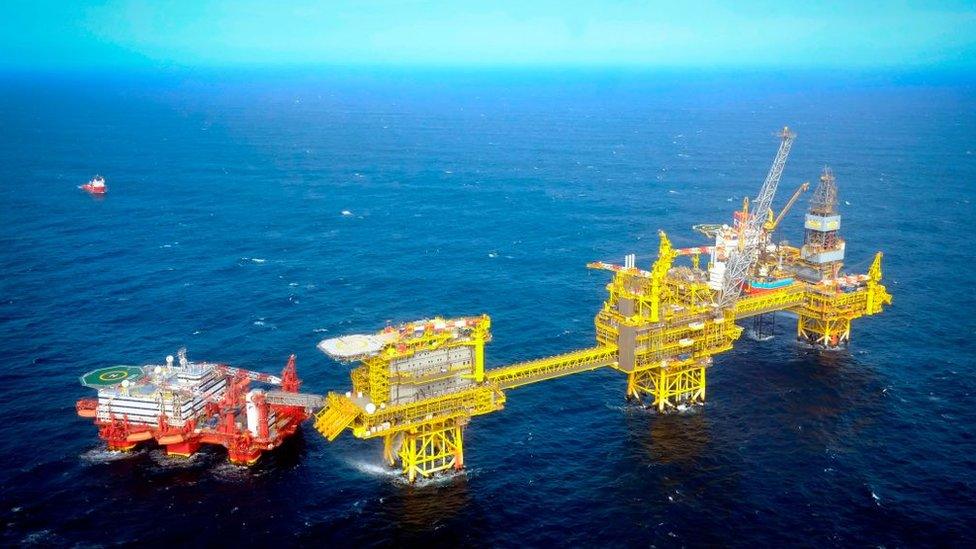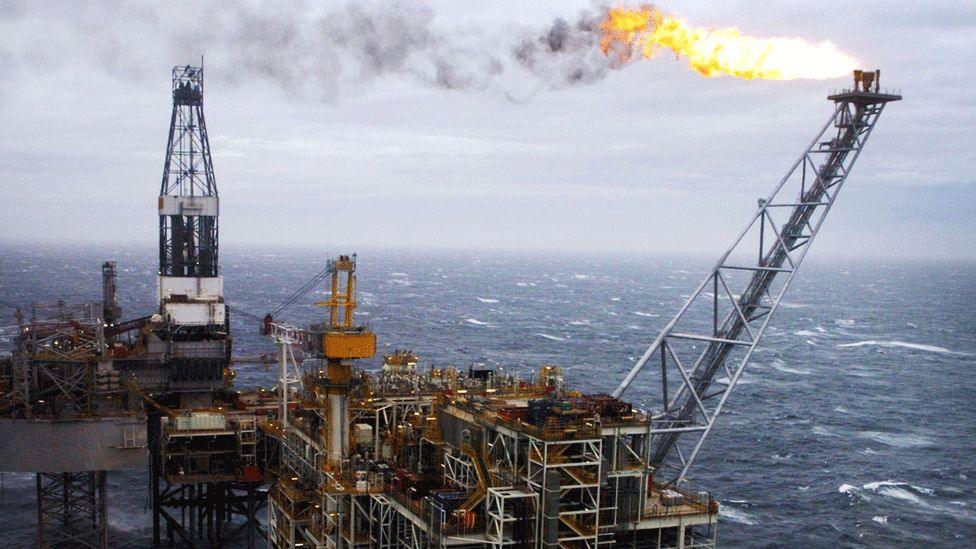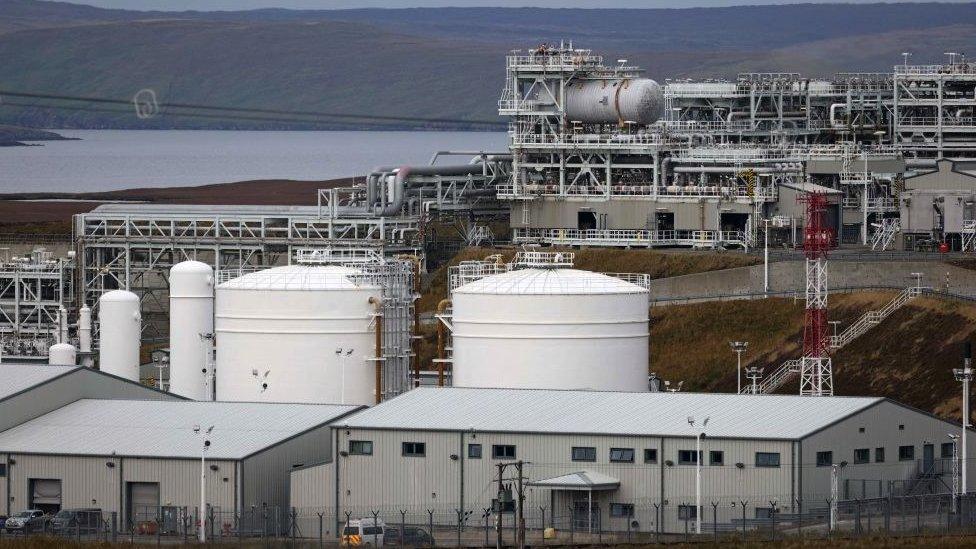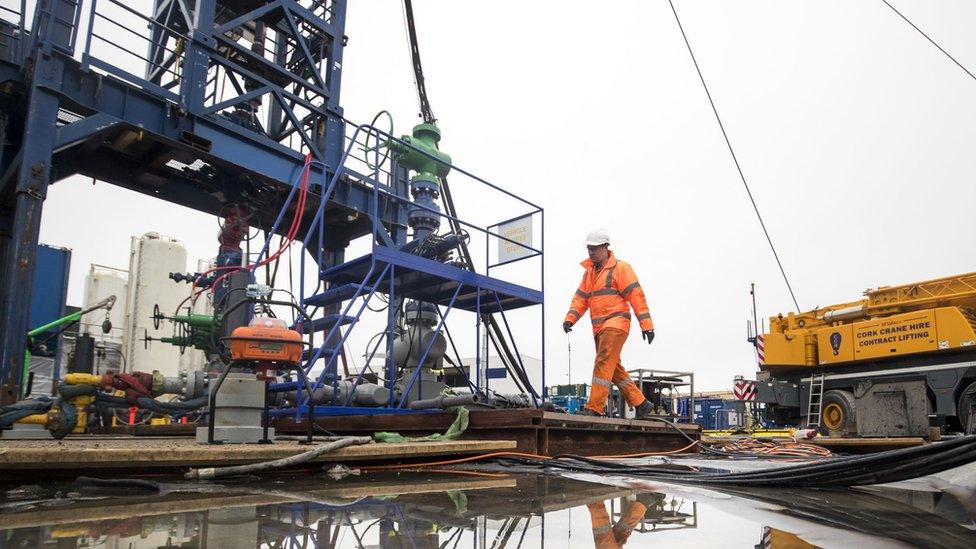North Sea oil: Why are people arguing about it?
- Published
- comments

The UK government is going to allow companies to explore for more oil and gas in the North Sea.
Nearly 900 new locations are being offered for exploration.
It's caused controversy because international climate scientists say projects like this should be stopped, not expanded, if there is to be a chance of dealing with climate change.
The government says getting more gas and oil will help make sure the UK has enough energy and that it will create good jobs and grow the UK economy.
What's the background

The North Sea contains reserves of oil and gas but drilling to get it peaked about 20 years ago.
Since then the UK has gone from producing more oil and gas than it needs, to buying it in from other countries who have been selling for less money than it costs for it to be made in the UK.
What is the problem?

Sullom Voe Terminal in the Shetland Islands handles production from oilfields in the North Sea
Oil and gas are parts of an important source of energy that is used all around the world - known as fossil fuels.
The problem is that the burning of fossils fuels for energy for homes, businesses and travel is also an significant creator of carbon emissions which contribute to global warming, climate change and pollution.
Many scientists, environmentalists and the Intergovernmental Panel on Climate Change (IPCC) - the global group which advises governments on climate science - agree that no new projects to drill for more fossil fuels should begin.
Also the UK's government has committed to plans to help the country cut emissions to 'net zero' by the year 2050.
It's argued that projects like drilling for more oil in the North Sea won't help achieve that aim.
Net zero emissions are part of a plan to tackle climate change
It means emissions from homes, transport, farming and industry will have to be avoided completely or - in the most difficult examples - offset by planting trees or sucking CO2 out of the atmosphere.
A rise of 1.5C in average world temperature above pre industrial levels is considered the threshold for dangerous climate change.
BBC environment expert Kevin Keane says that it is clear that if governments are to tackle climate change we need to eliminate our carbon emissions but he also says there's disagreement on how quickly we should be doing that.
"Environmentalists say yesterday, India says by 2070. The middle ground is around 2050," says Kevin.
What are the people in favour saying?

The government says the UK needs to get the most out of its own natural resources, to make sure it can get energy when it needs it and that new exploration will also create skilled, well-paid jobs.
And its supporters say that even if they go ahead, the government can still keep its promise to reach net zero greenhouse gas emissions by 2050.
Anna tells Martin about her dad's job on an oil rig
They say the North Sea fossil fuels will just replace fuel bought from other countries which will cut the cost and emissions created by production and transportation of that fuel from elsewhere.
Why is this coming up now?
Cost of living crisis: BBC expert answers YOUR questions
One of the main reasons behind the cost of living crisis is a big rise in energy prices.
Part of that is driven by the war between Russia and Ukraine. Russia is a big producer of gas and oil and the war, and other country's opposition to it, has led to prices going up.

Business Secretary Jacob Rees-Mogg has said he would like "every last drop" of oil to be extracted from the North Sea
The government says it wants to have more energy produced here in the UK which it hopes will protect the UK from large price rises.
However, both environmental campaigners and the oil industry agree that the reserves in the North Sea will not be large enough to have a significant impact on the prices consumers pay for energy in the UK.
The government has also said it will look more at fracking as a way of getting more energy from the UK - but that is also controversial and many groups and communities have said they don't want that to happen either.
